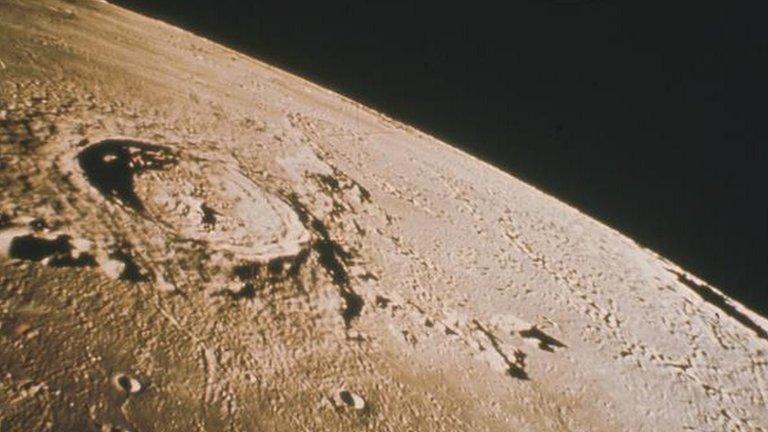Milton Keynes university scientist has fingers crossed for moon mission
- Published
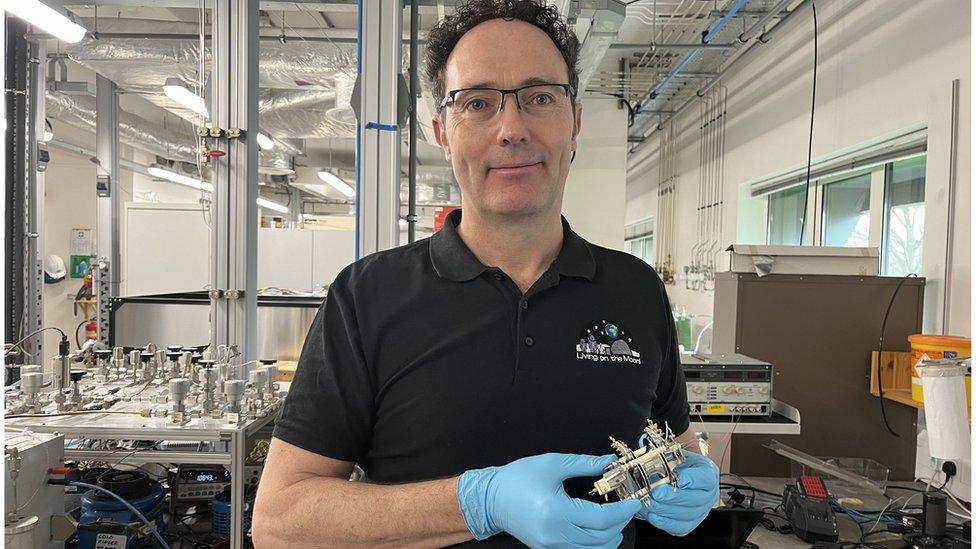
Simeon Barber developed the spectrometer which would be the first instrument from the UK and Europe to land on the Moon
A scientist who developed an instrument to study water on the moon said he hoped for good weather so a trip to the satellite could take place next week.
Simeon Barber from The Open University, Milton Keynes, developed the Peregrine Ion Trap Mass Spectrometer which will be onboard Peregrine Mission One.
The mission aimed to study lunar water cycles and see if water could be extracted from the orb in future.
"I'll be in Milton Keynes on Monday with my fingers crossed," he said.
The research scientist said missions such as this, launched from Florida, were "unpredictable" because of factors such as weather.
If the mission cannot be launched on Monday morning it would be rearranged for the following day until conditions are appropriate.
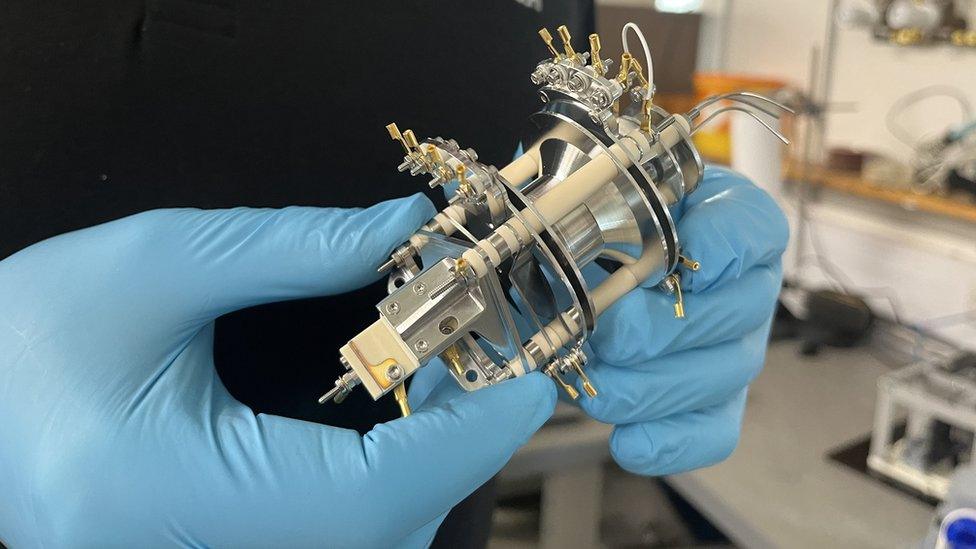
Simeon Barber explained the device works when "the lunar molecules bounce around inside our box"
The spectrometer would be the first instrument from the UK and Europe to land on the Moon.
It would arrive on the moon and send data to scientists in the US state of Maryland from 23 February.
"We'll be watching this data come down in real time and it going to be really exciting to see what we found out," explained Dr Barber who will be in Maryland when the data arrives.
He added: "This is the first real opportunity for 50 years to put an instrument on the surface of the moon, and to actually get down there and touch it and really make that definitive measurement".
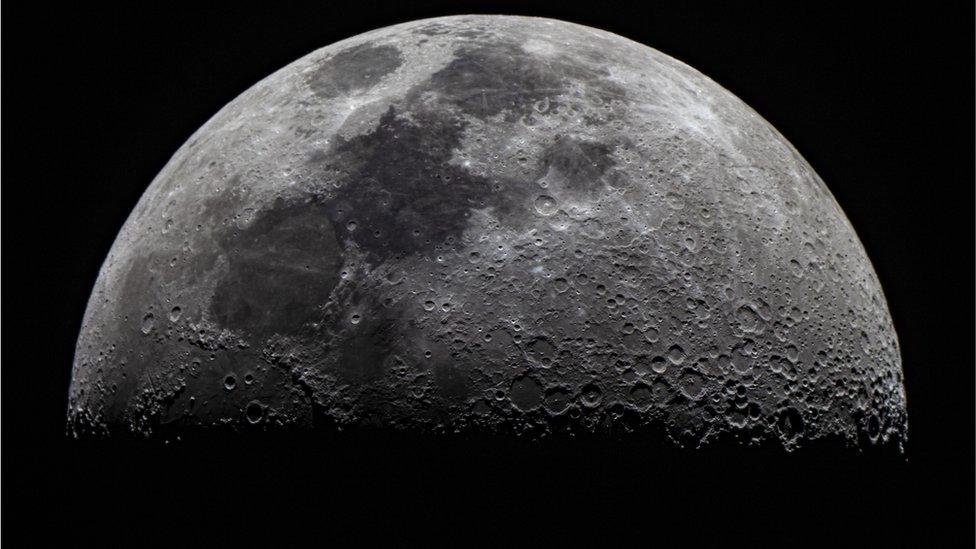
Dr Barber hopes "the human missions would start in just a few years time"
Explaining how it worked Dr Barber compared the device to "a weighing machine for atoms or molecules in the moon's atmosphere".
In addition to helping scientists understand atmospheres on airless bodies, it would also help with future human missions to the natural satellite.
Mr Barber said: "If we want to put humans back on the moon and have an extended stay it means we're going to need to provide them with drinking water and water for sanitation.
"In theory we could begin to extract water from the moon and use it in situ," he added.
The instrument was developed in partnership between Milton Keynes based The Open University, The European Space Agency, NASA Goddard Space Flight Center, Science Technology Facilities Council (STFC), RAL Space, and the UK's National Space Laboratory.
It was developed with the support of £14m from the UK Space Agency's membership of the European Space Agency.

Follow East of England news on Facebook, external, Instagram, external and X, external. Got a story? Email eastofenglandnews@bbc.co.uk , externalor WhatsApp 0800 169 1830
- Published27 June 2023
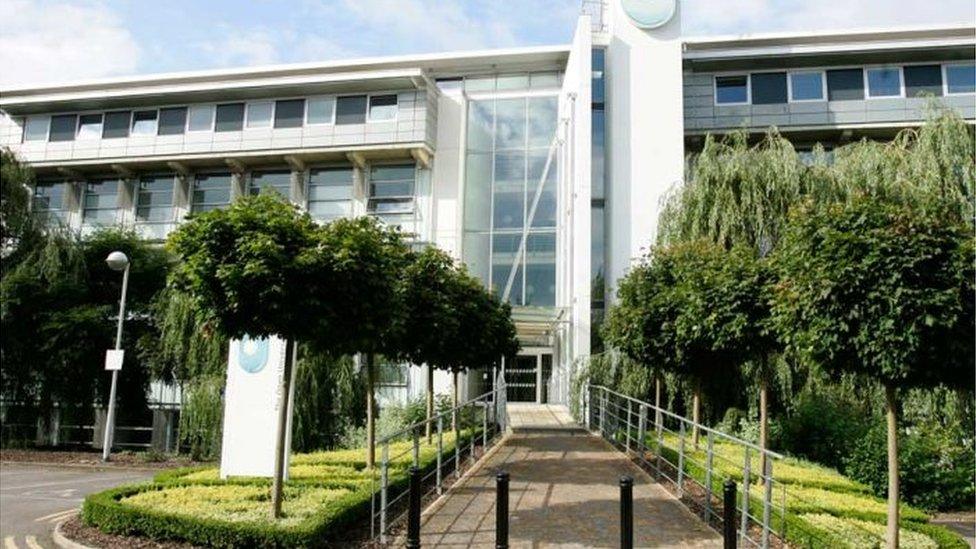
- Published7 June 2023
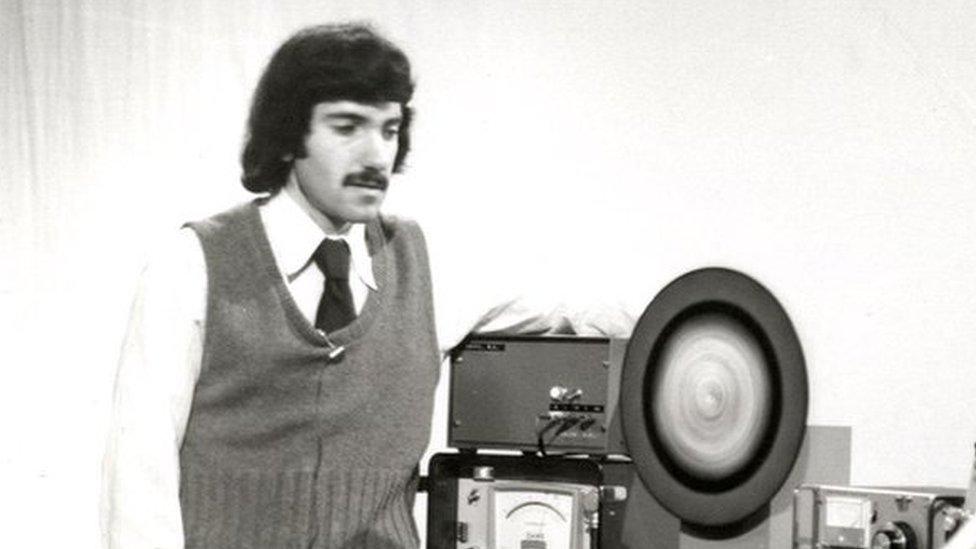
- Published17 February 2020
